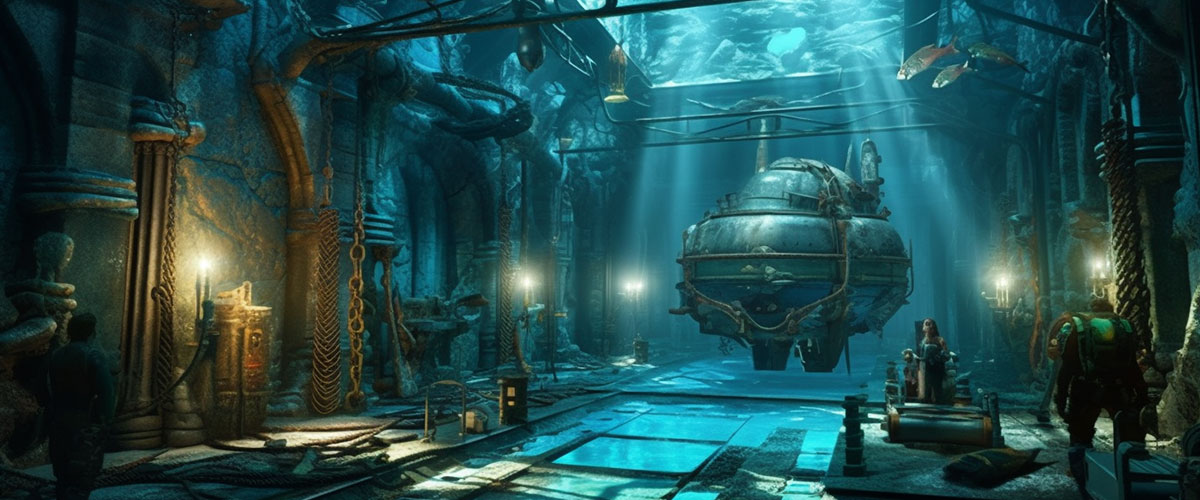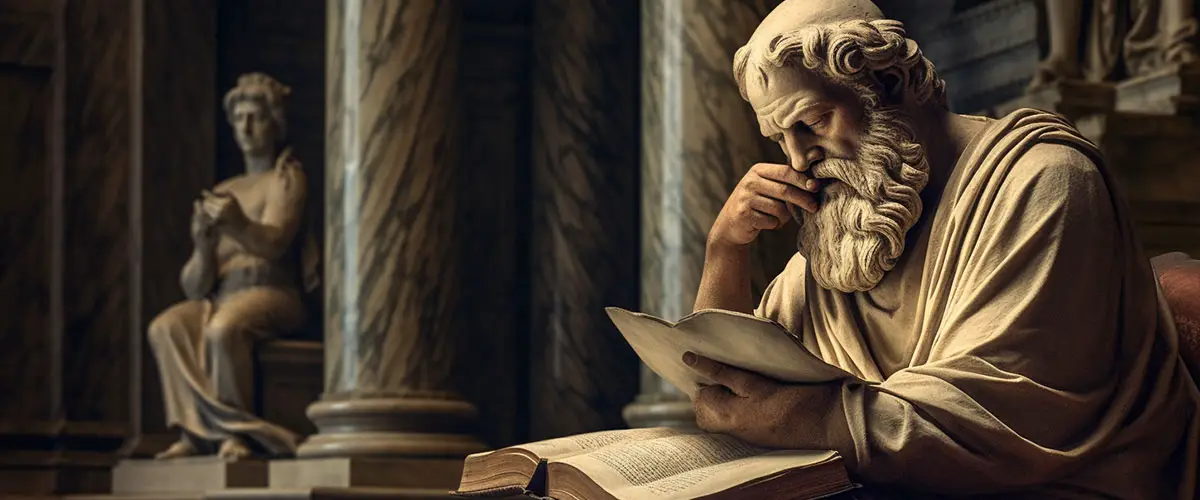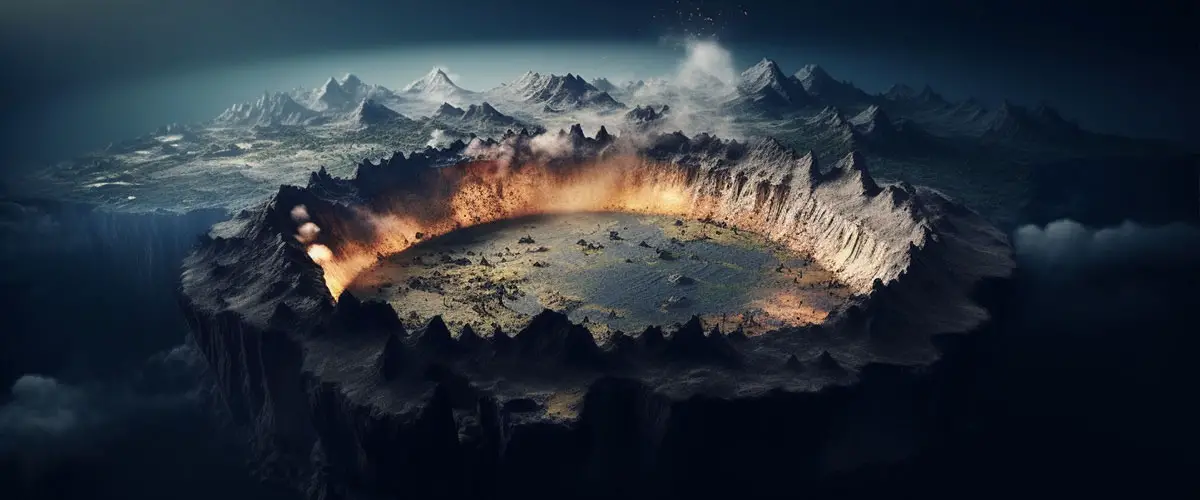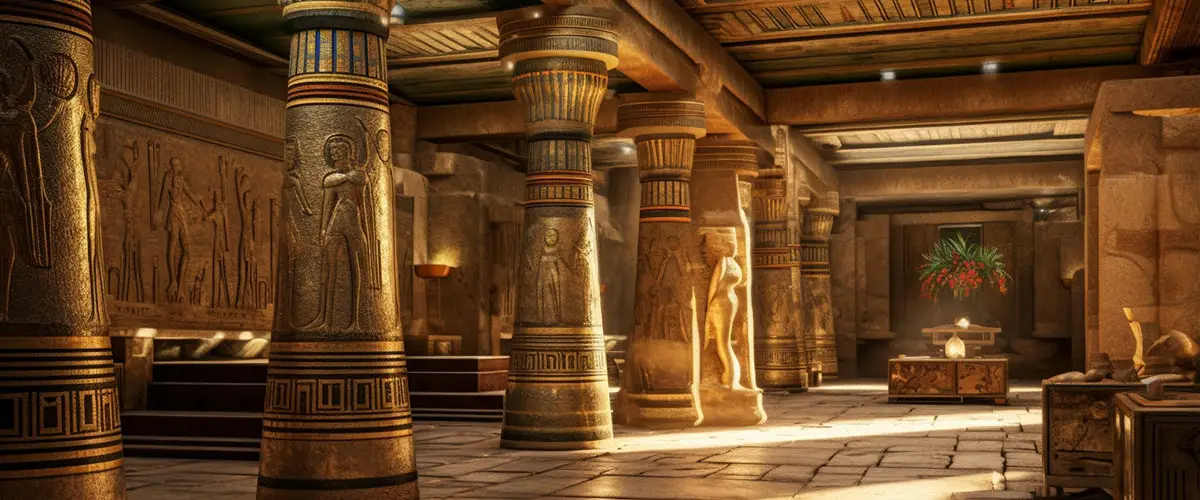Atlantis was allegedly a highly advanced civilization that existed prior to ancient Egypt, but is not officially recognized by science. However, is there any evidence of Atlantis?
Evidence of Atlantis is found in the writings of Plato, the geological records of the Atlantic Ocean, including a potential manmade structure from 12 000 years ago, the cultures of Central America, and that ancient Egypt produced the height of its civilization at the beginning, with no maturation phase prior.
Atlantis is a highly controversial topic because of the slim evidence, although because it was destroyed by a massive natural disaster, if it did exist it makes sense that there would be nothing remaining of it. In this article we are looking at what evidence does exist that Atlantis was in fact a real place.

The Writings of Plato
The most widely cited source on Atlantis is the writing of Plato. In two dialogues named Timaeus and Critias he describes Atlantis. Students of Plato are split on what he meant by this story, as some take it to be fiction, similar to Plato’s most famous book the Republic, and it is a narrative meant to comment on what makes a perfect state.
Others take it to be historical fact. Critics of the theory that Atlantis is fiction point out that so much of Plato’s description of Atlantis, such as the large rectangular prairies, or the red, white, and black bricks that were quarried out from under the center island to be used in construction, do nothing to serve the main narrative, and feel much more like a historical description.
Plato himself only said that he learned of Atlantis from a man named Solon. Like Socrates, Solon never wrote anything down, and what we know of him today is based on the writings of Plato. He was however by all accounts a remarkable man, and an influential statesmen, lawmaker and poet.
For a thorough summery of everything Plato said about Atlantis, click here.

The Geological Records
Evidence which may suggest a lost continent in the Atlantic Ocean can be found. For example, layers of coal deposits in the earth show how the land has repeatedly risen above sea levels enough for forests to grow, before later before submerged once again. Also, natural disasters large enough to cause massive action have occurred in recent memory, providing evidence of the possibility of one large enough to sink a continent.
For example, in the 1700s a volcano erupted off the coast of Iceland, killing nearly 20% of the Icelandic population. Active volcanoes in Santorini and Portugal are occasionally catastrophic to local inhabitants. In Morocco, the ground opened up, swallowing a village of 10 000 people, before closing up again. Also, a new island was born in 1831 in the Mediterranean Ocean, as the result of an earthquake.
Research ships from numerous countries including the United States have mapped out the bottom of the Atlantic Ocean, and what they discovered is a large land mass. It is located between the coasts of Great Britain, South America, and Africa, and is 9000 ft higher than the surrounding areas.
Given that we continue to observe parts of the planet rising and sinking due to seismic activity, it is not unreasonable to consider that if this region of the bottom of the Atlantic Ocean was higher, it would form a continent.

The Plants and Animals of Europe and North America
Studying the plants and animals of the two continents on either side of the Atlantic Ocean have led some researchers to conclude that these two land masses must have had continual contact with each other in history.
Some believe the horse originated in North America. The horse is a symbol of Poseidon the founder of Atlantis, and later became synonymous with European advancement. However, its presence, as well as that of the wolves and other animals, suggest interaction between the ecosystems of Europe and North America must have occurred.
The Cultures of Central America
Another indicator of a lost civilization are the similarities found between the cultures of indigenous Central America, and those of the Mediterranean people, or those who descended from Noah according to the Bible.
Despite officially not having any contact prior to Columbus travelling to the Americas, both groups of cultures have Great Flood myths, as well as believes about baptism, and similarities about burial.
The cultures of Central America also have legends of wise bearded men visiting them from other lands and teaching them. They even have art depicting men with beards, despite no growing facial hair themselves.
The Strange 12 000 year old structure known as Bimini Ridge
The Bimini Ridge, or Bimini Road it is sometimes called, is a mysterious structure found off the coast of the Yucatan Peninsula. Its shaped suggest that it was crafted by humans, and is not naturally occurring. It is estimated that this structure predates the last ice age, which was 12 000 years ago. According to the Edgar Cayce, this structure was a road that was part of the temple of Poseidon, the central structure in Atlantis.
The Psychic readings of Edgar Cayce and Helena Blavatsky
Some of the most widely referenced literature on the subject of Atlantis comes from mystics such as Edgar Cayce, and Helen Blavatsky, who channel their knowledge by going into a trance state and accessing psychic information. Both have described Atlantis in great detail in their books.
And while this information cannot be included as concrete evidence of the existence of Atlantis, the track record of incredible insights by these legendary figures means that their information is taken seriously by many scholars.
Read a thorough review of Edgar Cayce’s statements on Atlantis here.
The Sculptures and Pottery of Pre Old Kingdom Egypt
A mystery in history which has no official answer, is found in the pottery and sculptures of the very beginning of ancient Egypt. Generally referred to as Neolithic Egypt, it is the period before the Old Kingdom, in which the Pyramids and Sphinx were built. Archeologists have found remarkable bowls and vases, as well as detailed sculptures of human figures dating to this time, in which are crafted out of metal much harder than steel. At the time they had only copper tools, making it almost impossible to create such pieces. This has led some alternative researchers to consider that these items were heirlooms from an earlier society.
Ancient Egypt had no Period of Adolescence
Another piece of evidence to suggest an advanced civilization prior to ancient Egypt is the fact that Egypt never had any maturation phase. Instead, Egypt was in its full expression of its culture and monuments during the Old Kingdom, which occurred in the beginning of its civilization.
Not only were later generations of Egyptians, such as the New Kingdom, and the Ptolemaic Dynasty, not able to sustains the level of culture and architecture of their predecessors, but it actually declined. Temples built after the early pyramid of Egypt have disintegrated with time, due to inferior craftsmanship relative to the beginning of ancient Egypt.

This is because the culture of Ancient Egypt was inherited, rather than developed from scratch. As the continent of Atlantis was destroyed, priests of Atlantis were able to escape to Egypt, where they educated the local population and rebuilt civilization. This is what created ancient Egyptian civilization according to Edgar Cayce and others, and meant that Egypt skipped over any kind of development phase, with initial prototypes of pyramids that were later improved upon.
Rather the culture jumped straight to producing its most magnificent structures, as well as possessing their knowledge of embalming, the afterlife, and hieroglyphs, suggesting that its knowledge already existed and was inherited, rather then be developed through research, trial and error. You can read more about ancient Egypt here.
Recommended Reading
If you want to continue exploring the subject of Atlantis more deeply, you can see which books I recommend by clicking here.
